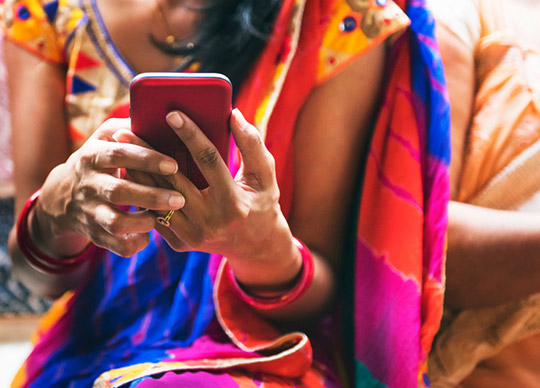
By Sarosh Bana, Mumbai Correspondent
In its relentless crusade against citizens, the Indian government is layering them with yet another shroud of mass surveillance through new digital rules that require social media platforms like Facebook, WhatsApp, Twitter, Instagram, YouTube and Signal to renege on their own user privacy codes.
The Information Technology (IT) (Intermediary Guidelines and Digital Media Ethics Code) Rules, 2021, which came into force on Wednesday, mandate these technology conglomerates with over five million users in India to enable traceability of end-to-end encrypted messages. Such decryption is disallowed by these companies’ own internal procedures in order to safeguard freedom of expression of their users.
These intermediaries enjoy vast networks in India. WhatsApp has 530 million subscribers, YouTube, 448 million, Facebook, 410 million, Instagram, 210 million, and Twitter, 17.5 million.
The new rules also oblige each of these platforms to establish a local office manned by an India-based grievance officer, compliance officer and nodal contact person for liaising with law enforcement agencies and aggrieved users.
While Google and Facebook have expressed intent to comply with the new rules, without specifying when, Facebook-owned WhatsApp has taken the Indian government to court over the issue. Twitter, in turn, called the government’s move a “dangerous overreach that is inconsistent with open, democratic principles”, adding it was troubled by the requirement to make the compliance officer criminally liable for content on the platform, the mandate for proactive monitoring, and the “blanket authority to seek information” about customers.
WhatsApp’s lawsuit cites the new rules as violative of India’s constitutionally guaranteed privacy rights as they mandate the social media companies to identify the “first originator of information” when the authorities so demand. The government termed WhatsApp’s act as one of defiance.
Regulation of the social media may be deemed opportune in the present times, but in the hands of an authoritarian and hyper-nationalist regime, the rules can prove draconian.
Indeed, the new rules are being questioned as the IT (Intermediaries Guidelines) Rules, 2011, that they supplant proved adequate. The new rules are felt to have been designed to serve the government at the cost of the intermediaries and their subscribers. Their timing too is perceived as ill-conceived at a time the government’s single most priority should be to counter the coronavirus.
The deeply image-conscious Narendra Modi government has scrupulously sanitised all coverage by India’s mainstream media, and also arrogated the narrative on social media through legions of cyber troops who amplify disinformation and manipulate public discourse on politics, apart from cudgelling dissenters.
However, the need to regulate social media seemed compelled by the cataclysmic shift in the online discourse where netizens, with unprecedented fearlessness, have been berating the government for its calamitous mishandling of the second wave of the Covid-19 pandemic that has led to avoidable carnage and misery.
The final straw was apparently their vociferous demand for Prime Minister Modi to resign, after acknowledging personal accountability for the catastrophe. #ResignModi became the top trending hashtag on Twitter.
Not many contest the government’s reiterated view that the right to privacy is not absolute, but many do feel intimidated by its selective application of law. The ruling Bharatiya Janata Party (BJP) and its IT cell have been frequently pilloried on social media for perpetuating false information to polarise the population, while browbeating dissenters with the harshest charges of sedition and anti-nationalism even for sharing posts lampooning the government and the leadership.
People have also been arrested for their desperate online appeals for medical assistance for their Covid-afflicted family members, on charges of degrading the government and the country before the international community. Even the aged and infirm have been imprisoned without trial under grievous laws for participating in public protests, with a Parkinson’s-afflicted octogenarian being denied even footwear and a straw to drink from.
A 21-year-old green activist was arrested in February for sedition as she had shared with Sweden’s famed green activist Greta Thunberg a Tweet that supported the on-going farmer protests in India. The National Crime Records Bureau (NCRB) reports a 160 per cent rise in sedition cases between 2016 and 2019, beyond which records have yet to be collated. Similarly, 1,198 people were detained under the stringent National Security Act (NSA) in 2017 and 2018.
The new rules can now arraign them all under Section 3 (b) (viii) that speaks of “threatens the unity, integrity, defence, security or sovereignty of India, friendly relations with foreign States, or public order, or causes incitement to the commission of any cognisable offence or prevents investigation of any offence or is insulting other nation”.
At the same time, the government has taken no action, indeed defended, its leaders, including ministers, who publicly launched tirades against protestors and minorities. Singling out Muslims amongst the protestors, the Prime Minister had pronounced that “those creating violence can be identified by their clothes”, an oblique reference to the traditional attire of this community. One minister urged his supporters to gun down “these traitors”, while another asked rallyists to “electrocute” opposition party candidates. One BJP MP warned a group of protestors, who were mainly Muslim housewives, that their houses would be stormed and they raped and looted. Even the protesting farmers have been branded anti-nationals, Pakistanis and more.
Just days ago, police teams swooped on Twitter’s offices in north India as a reprisal against its flagging as ‘manipulated media’ a tweet by BJP spokesperson Sambit Patra. Patra had hosted screenshots of a purported opposition Congress party’s ‘toolkit’ – a term popularised by the government to point to ‘seditious’ activities – enunciating social media directives to party workers for discrediting Modi for his disastrous handling of the pandemic. The ‘toolkit’ was established to be so sloppily crafted that even the Congress party letterhead it was carried on was forged.






